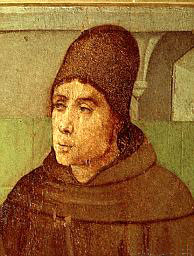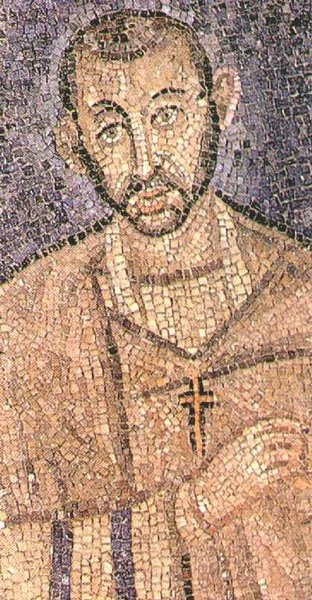
Alexander of Hales, also called Doctor Irrefragibilis and Theologorum Monarcha, was a Franciscan friar, theologian and philosopher important in the development of scholasticism.

The College of Sorbonne was a theological college of the University of Paris, founded in 1253 by Robert de Sorbon (1201–1274), after whom it was named.

Antoine-Frédéric Ozanam was a French literary scholar, lawyer, journalist and equal rights advocate. He founded with fellow students the Conference of Charity, later known as the Society of Saint Vincent de Paul. He was beatified by Pope John Paul II in the Cathedral of Notre-Dame de Paris in 1997. His feast day is 9 September.

Scotism is the philosophical school and theological system named after John Duns Scotus, a 13th-century Scottish philosopher-theologian. The word comes from the name of its originator, whose Opus Oxoniense was one of the most important documents in medieval philosophy and Roman Catholic theology, defining what would later be declared the dogma of the Immaculate Conception by Pope Pius IX in his constitution Ineffabilis Deus on 8 December 1854.

Frédéric Beigbeder is a French writer, literary critic and television presenter. He won the Prix Interallié in 2003 for his novel Windows on the World and the Prix Renaudot in 2009 for his book A French Novel. He is also the creator of the Flore and Sade Awards. In addition, he is the executive director of Lui, a French adult entertainment magazine.
Muiris Ó Fithcheallaigh, or Maurice O'Fihely, in Latin Mauritius de Portu Hibernicus or Mauritius Hibernicus; c. 1460 – 25 March 1513) was an Irish Franciscan theologian and Archbishop of Tuam.

Ismael Nery was a Brazilian artist.

Mary of Jesus of Ágreda , OIC, also known as the Abbess of Ágreda, was a Franciscan abbess and spiritual writer, known especially for her extensive correspondence with King Philip IV of Spain and reports of her bilocation between Spain and its colonies in New Spain. She was a noted mystic of her era.
John Paul Nazarius or Giovanni Paolo Nazari was an Italian Dominican theologian.
Marguerin de la Bigne was a French theologian and patrologist and first publisher of the complete works of Isidore of Seville.
Peter Tudebode was a Poitevin priest who was part of the First Crusade as part of the army of Raymond of Saint-Gilles. He wrote an account of the crusade, Historia de Hierosolymitano itinere, including an eye-witness account of the siege of Antioch of 1097–1098. The work is included in Patrologia Latina, Volume 155, pp. 758–823. The work appears in Recueil des historiens des croisades (RHC), with a translation and Præfatio by French historian Jean Besly (1572–1644).
Gerard of Abbeville (1220-1272) was a theologian from the University of Paris. He formally became a theologian in 1257 and from then was known as an opponent of the mendicant orders, particularly in the second stage of the conflict, taking part in a concerted attack that temporarily affected their privileges.
Thomas of Ireland, also known as Thomas Hibernicus, Thomas Palmeranus, or Thomas Palmerstonuswas an Irish anthologist and indexer.
Malachy of Ireland, also known as Malachias Hibernicus, was a theologian and Archbishop of Tuam in 1280.
Armand-Benjamin Caillau was a French Catholic priest, a missionary and writer.
Catholic dogmatic theology can be defined as "a special branch of theology, the object of which is to present a scientific and connected view of the accepted doctrines of the Christian faith."
Nicol Mac Flann was Archbishop-elect of Tuam.
John of Wales, also called John Waleys and Johannes Guallensis, was a Franciscan theologian who wrote several well-received Latin works, primarily preaching aids.

De bono mortis is a sermon by St. Ambrose (340–397), a Doctor of the Church. The text, which argues that death is not a bad thing to be feared, was written between 387 and 391. A companion piece or supplement to his De Iacob, it was composed "as two sermons, perhaps for the catechumens awaiting baptism at Easter". Profoundly informed by neoplatonism, it is one of the texts through which Augustine of Hippo, Ambrose's pupil in Milan, came under the influence of that philosophy.







